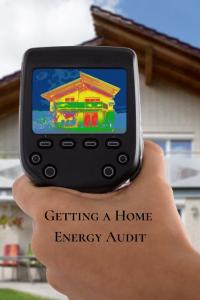- 50 reads

Home Energy Expenses are Increasing
In a day where homeowners are increasingly concerned about the impact of energy consumption on the environment as well as on their pocket books, getting a home energy audit is a great idea. It’s a great first step in finding ways to increase your home’s energy efficiency.
The average household will spend 5% and 22% of their income on energy consumption. Energy costs keep rising year-over-year. According to the U.S. Department of Energy, the average U.S. family spends at least $2,000 per year on utilities, with home heating and cooling accounting for more than half the bill.
The DOE also estimates that consumers can save as much as 25% on utilities by adopting energy-efficient features in their homes. The good news is, many small changes can really add up to sizable savings. Simply replacing light bulbs and sealing up windows and cracks can save money over time.
While July is the month with the highest energy bills on average throughout the country, winters can be high cost as well, depending on the area of the country. Determining where your biggest energy vampires are help you save in every season. Whether you need energy saving tips for winter, or tips to save in the heat of summer, an energy audit will provide you with the right steps.
Today’s Home Buyers Care About Energy Consumption
If you are considering selling your home in the near future, you’ll be interested to know that today’s home buyers are also interested in energy efficiency. National Association of REALTORS home buyer surveys have consistently supported the fact that home buyers will pay more for an energy efficient home.
Getting a home energy audit and making changes to your home accordingly will make your home more appealing to home buyers. It will also help your home stand out among the competition. Especially if your home was built more than 10 years ago. New homes are also your competition when you are selling, and have been built with many energy efficient features not available before the last decade.
The cost of a professional energy audit is somewhere between $300 and $600, depending on your location and the depth of the service. When you consider the potential savings of 25% of your energy bill, it’s well worth the cost.
You can also do your own home energy audit for between $100 and $400. You connect it to your circuit breaker and monitor your electricity usage. There are also many books (and e-books) on the market with hands-on guides to finding energy sappers in your home and applying money-saving solutions.
Publicize Your Energy Efficient Home Features
Smart home and green home technologies are catching on. With each innovation, the cost of these products keeps coming down, making many of these technologies affordable. This will only increase the ROI of energy efficient home products.
This increased affordability has raised the expectations of today’s home buyers. Many Millennial home buyers, who happen to be the largest demographic purchasing homes today, place energy efficiency high on their wish-list of home features.
When marketing your home for sale, be sure to highlight the energy saving features you’ve implemented. Make your energy audit findings and any improvements you’ve made available for buyers. Print out your average energy bills and show records of your improvement. Then, don’t be surprised when a savvy home buyer chooses your home over the comparable homes because they like the thought of saving money on their energy costs.

